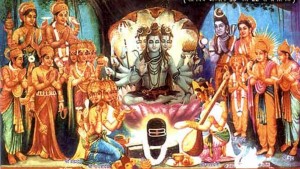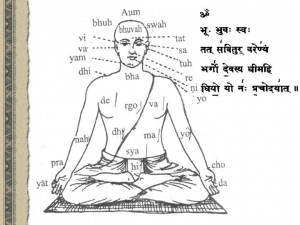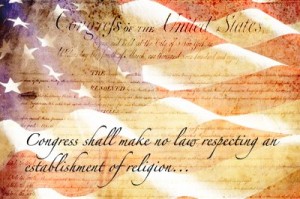 You know, I really enjoy exposure to cultures outside my own. And, love it or leave it, religion is a huge part of almost every culture. I think learning about other peoples traditions and beliefs helps me to feel more comfortable about folks who I might otherwise feel very removed from. Sharing culture is one of those wonderful experiences that strangely brings people together by exposing people to differences – largely because most cultural differences seem far less alien once people realize the similarities they share with one another in spite of their differences.
You know, I really enjoy exposure to cultures outside my own. And, love it or leave it, religion is a huge part of almost every culture. I think learning about other peoples traditions and beliefs helps me to feel more comfortable about folks who I might otherwise feel very removed from. Sharing culture is one of those wonderful experiences that strangely brings people together by exposing people to differences – largely because most cultural differences seem far less alien once people realize the similarities they share with one another in spite of their differences.
However, the way to expose people to other cultures in America cannot come at the expense of the First Amendment of the Constitution.
It would seem at two different city council meetings in Utah, that was the very sacrifice that was made in order to expose the people of Utah to Hindu culture – and that is very disappointing.
expose the people of Utah to Hindu culture – and that is very disappointing.
The story goes, on the evening of July 5th the City Councils of South Jordan and Draper:
…Reverberated with Sanskrit mantras from ancient Hindu scriptures.
He started and ended the prayer with “Om”, the mystical syllable containing the universe, which in Hinduism is used to introduce and conclude religious work. Om was followed by Gayatri Mantra, the most sacred mantra in Hinduism.
And what is the Gayatri Mantra? Well, there are literally hundreds of different English translations of the mantra. The mantra itself reads:
Aum
Bhuh Bhuvah Svah
Tat Savitur Varenyam
Bhargo Devasya Dheemahi
Dhiyo Yo nah Prachodayat
And is generally described in these terms:
Gayatri Mantra (the mother of the vedas), the foremost mantra in Hinduism and Hindu beliefs, inspires wisdom. Its meaning is that “May the Almighty God illuminate our intellect to lead us along the righteous path”. The mantra is also a prayer to the “giver of light and life” – the sun (savitur).
The prayer and translation described in the article read a little differently:
Reciting from Brahadaranyakopanishad [Mahanarayanopanishad], Zed said ‘Asato ma sad gamaya, Tamaso ma jyotir gamaya, Mrtyor mamrtam gamaya’, which he then translated as ‘Lead me from the unreal to the Real, Lead me from darkness to Light, and Lead me from death to Immortality’.
 Though it’s true that some translations of the prayer exist that might be considered almost secular, replacing the word “God” with more airy terms like “Light” and “Life Giver”, the meaning of the prayer is obviously religious and thus, it is in no way in keeping with the establishment clause – the clause contained in the First Amendment which prohibits the preference of one religion over another by the U.S. government.
Though it’s true that some translations of the prayer exist that might be considered almost secular, replacing the word “God” with more airy terms like “Light” and “Life Giver”, the meaning of the prayer is obviously religious and thus, it is in no way in keeping with the establishment clause – the clause contained in the First Amendment which prohibits the preference of one religion over another by the U.S. government.
This prayer being led at the beginning of a city council meeting is just as unconstitutional as any Christian prayer, and should be treated with just as much scorn and dissent. If you want to share different faiths between people, invite religious representatives to your churches to pray, not to your government meetings.